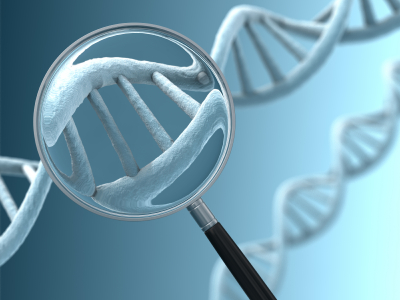현재 위치:홈 > 뉴스현황 > Press Events > A Metabolic Pathway ...
저자: 업로드:2017-08-14 조회수:
University of Maryland researchers think they've discovered how a specific gene plays a key role in helping liver cancer cells obtain the nutrition they need to proliferate. Their study (“Silencing of Solute Carrier Family 13 Member 5 Disrupts Energy Homeostasis and Inhibits Proliferation of Human Hepatocarcinoma Cells”) appears in the Journal of Biological Chemistry.
Cancer is often treated by starving it by targeting the pathways cancer cells use to meet their energy needs. The laboratory of Hongbing Wang, Ph.D., focuses on this approach as it applies to liver cancer.
“The solute carrier family 13 member 5 (SLC13A5), a sodium-coupled citrate transporter, plays a key role in importing citrate from the circulation into liver cells,” write the investigators. “Here, we sought to determine whether SLC13A5 regulates hepatic energy homeostasis and proliferation of hepatoma cells. RNAi-mediated silencing of SLC13A5 expression in two human hepatoma cell lines, HepG2 and Huh7, profoundly suppressed cell proliferation and colony formation, and induced cell cycle arrest accompanied by increased expression of cyclin-dependent kinase inhibitor p21 and decreased expression of cyclin B1."

“…our findings expand the role of SLC13A5 from facilitating hepatic energy homeostasis to influencing hepatoma cell proliferation and suggest a potential role of SLC13A5 in the progression of human hepatocellular carcinoma.”
"The liver is one of
the most busy, active organs in the body," Dr. Wang said, so the healthy
liver already needs a lot of energy. In addition, liver cancer appears to be
one of the few cancers of which incidences seem to be on the rise, possibly in
association with the rise of metabolism-related conditions such as nonalcoholic
fatty liver disease.
When looking for genes that
might play important roles in the metabolism of healthy and cancerous liver
cells, Dr. Wang and his colleagues became interested in a gene called SLC13A5,
which produces a protein that transports citrate into cells. SLC13A5 is
expressed mainly in the liver, but its role is relatively understudied.
"If you search for SLC13A5 in PubMed—I searched this morning—there are 54 publications, which is not a whole lot," noted Dr. Wang. Nearly half of these studies were published in the last two years. Research on SLC13A5 has focused on its role in obesity and diabetes; knocking out the SLC13A5 gene in mice prevents high-fat diet-induced obesity. If this gene plays a role in ene